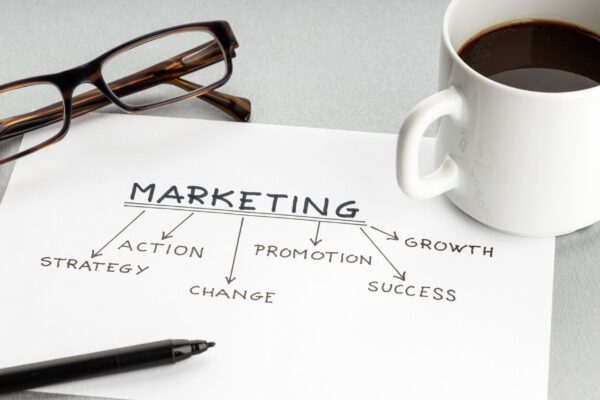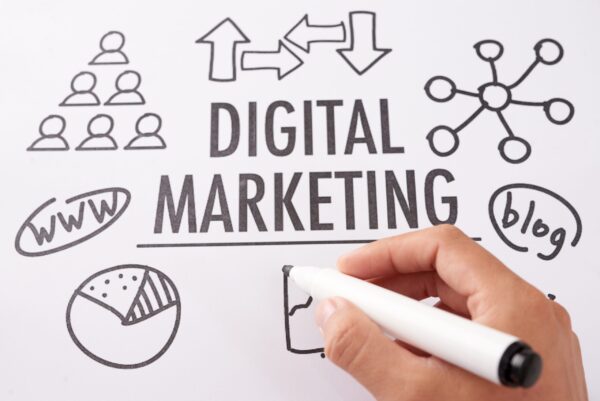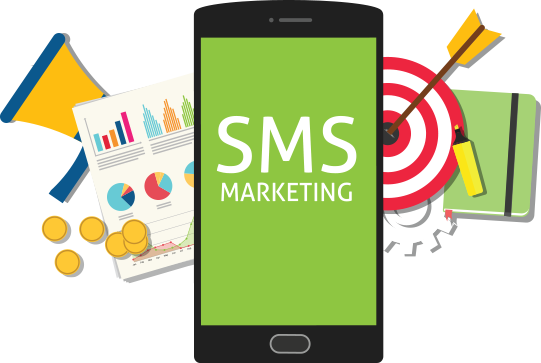
There is no debate that success in the current business setting is greatly anchored on marketing. Understanding the difference between digital marketing vs. content marketing is a good place to start. These marketing strategies are critical for businesses because they help draw customers’ attention to the services or products offered and engage them in a way that influences their purchase decisions.
Therefore, a better way to put it is that investing in marketing improves chances of success because how can you retain customers and acquire new ones without marketing? Telling the difference between digital marketing vs. content marketing is the answer. In simple terms, marketing drives sales, which is the lifeline of most, if not all, businesses.
It not only helps create and maintain the demand for a business’s products or services but also enhances the competitive edge of the business through a good reputation. Therefore, businesses have to get their marketing strategies right because marketing involves a lot of investment.
Digital marketing and content marketing are some of the latest marketing trends in today’s business setting. As a result, it is essential to understand what digital marketing vs. content marking is since most people use the terms interchangeably, thinking they mean the same thing.
A business owner needs to accurately differentiate the two marketing concepts and leverage their advantages for remarkable business outcomes.
Digital Marketing
In the most basic sense, digital marketing is a comprehensive term that refers to a set of technologies, techniques, and information that marketers either use to enter new markets or create new products and services.
Digital marketing is vast, with the primary goal of integrating diverse mechanisms to improve customer engagement and attract prospective customers. Hence, digital marketing is direct and broad with the aim of converting new customers or retaining existing ones.
What are the 8 Types of Digital Marketing

Social media marketing: this is the most known form of digital marketing, especially in the Internet age, where more than half of the world’s population uses social media, with an average user accessing more than six platforms in a month.
Social media marketing leverages such statistics to promote products and services. Hence, it should be a major part of the marketing strategy for all businesses.You can achieve this by having a vibrant social media presence by creating sites for your company or business on various platforms, such as Twitter, Facebook, Instagram, and LinkedIn.
Social media presence boosts brand awareness, generates leads, and boosts traffic to your website, all of which are good for conversions and sales.
Content marketing: this is an indirect and subtle form of marketing that focuses on providing customers with the information they need concerning a service or product.
Content marketing is a long-term marketing strategy because the valuable information your business creates through this strategy becomes some form of library customers can refer to, potentially generating leads, closing sales, and creating brand loyalty.
When generating content, you should have the target audience in mind and regularly publish reliable and quality content for your brand to become a trusted voice within the industry. A trusted voice can easily become a trusted brand.
All these elements help us understand the difference between digital marketing vs. content marketing, with the latter being a component of the former.
Email marketing: in this form of marketing, businesses directly place their news about products and services, such as promotions, into the inboxes of customers.
Email marketing requires the integration of strategies to be effective, including thorough research and the tracking of key performance metrics. If done correctly, email marketing is the easiest form of digital marketing.
It also adds a personal touch to the messages customers receive about a brand, which increases the chances of conversions and more sales. This is because most of the customers who choose email subscriptions become regular customers of a product and actively visit these websites.
Search engine marketing (SEM): SEM increases the visibility of a website on the search engine results page. Appearing at the top of search results is essential for a business because it increases clicks and conversion rates, making the strategy the quickest way to bring results.
It is the most widespread form of advertising that integrates search engine optimization (SEO), which uses meta descriptions, catchy headlines, and links to relevant advertising.
In other cases, search engine marketing involves paid advertising to increase the ranking of a website based on specific keywords.
Affiliate marketing: in this marketing strategy, industry experts and social media influencers get into an arrangement with a brand and choose products they think they can promote online, hence the name affiliate.
These affiliate marketers then get a commission based on the sales, signups, or website visits the company gets as a result of their online product or service promotions.
In a world with an ever-increasing number of social media influencers with massive following hence far-reaching audiences, you may want to consider affiliate marketing as one of your key marketing strategies for fast and remarkable results.
Mobile marketing: many people spend many hours of their day scrolling their phones.
Mobile marketing takes advantage of this fact and reaches potential customers through mobile applications, email, websites, social media, and text messages with tailor-made information about a product, service, or brand in general.
This digital marketing technique pays attention to customer demographics, such as location, in creating tailor-made messages. In other words, mobile marketing helps you take a message to where your customer or potential customer is, resulting in sales.
Pay-Per-Click (PPC): PPC is a digital marketing strategy with the aim of increasing traffic to a website.
The paid advertising service increases a brand’s visibility on the search engine results page. You only pay based on the number of clicks your website receives when a potential customer conducts a search.
The amount you pay for the ad depends on the competition level for the keywords you use.
High costs are for keywords that people frequently use to conduct searches, as well as the keywords that many sites use to be found. The reverse is true for less competitive keywords.
Marketing analytics: knowing the appropriate marketing strategy for your target customers requires measurable and trackable data.
Marketing analytics strategy facilitates this knowledge by showing businesses the performance of their marketing efforts in a highly detailed way. For instance, brands that use the marketing analytics technique are able to know how often their customers open emails.
As a result, this informs their email marketing campaigns, how much time targeted customers spend on a web page, how many times customers click on a link, and much more. From here, businesses can make informed decisions and necessary adjustments to their digital marketing strategies to increase their revenue.
Content Marketing

In explaining digital marketing vs. content marketing, it is essential to outline the types of content marketing for an in-depth understanding of the two.
Content marketing is narrower in its approach. It creates and curates relevant information, including text, white papers, e-books, graphics, images, and videos, to tell stories about a brand.
This content is often distributed through owned, earned, or paid media, which subtly or indirectly markets the brand to customers and prospective customers. Unlike digital marketing, which is direct and focuses on short-term goals such as conversions, content marketing is more focused on building long-term relationships with customers, such as brand loyalty.
What are the 4 Types of Content Marketing
Blogs: blogs are renowned for their effectiveness in the content marketing domain. This strategy allows you to address topics that target your audience or customers, leading to organic traffic.
In this internet age, many people like to get quick information on diverse topics, giving businesses an opportunity to engage and educate their audiences, fostering trust and loyalty.
Of all content types, blogs, whether long-form blog posts or short-form articles, are cited as top performers. Hence, businesses seeking to boost their content marketing efforts must consider blogs.
Guides and how-to(s): this content marketing strategy is essential for businesses offering sophisticated services or products.
As already mentioned, content marketing is intended to provide target customers with the information they are searching for to increase conversions and sales.
The guides and how-to content marketing strategy provide in-depth information that demonstrates how knowledgeable you are, thereby expanding your online presence as well as brand loyalty. Your target audience will likely come back to your website if they find the information provided useful.
Case studies: the whole idea of content marketing, or marketing in general, is to show target customers why your business is the best answer to their needs or a specific problem they have.
Case studies are an invaluable asset that provides the best exhibition that your business is capable of solving a specific problem a customer may have. This content marketing strategy proves to the customer that you cannot only provide a solution but also that you are an expert and your solution actually works.
Simply put, case studies are solid proof that act as a powerful tool for conversions through tangible results that help build trust.
Customer reviews: the age of the internet has its ups and downs. One of the downsides is that many scammers or businesses claiming to have the capability to solve a problem but failing to provide satisfactory services and products have emerged.
As a result, many customers rely on reviews to make purchase decisions. Customer reviews and testimonials have the ability to transform a business in a way that no other marketing strategy can. The level of credibility of a business, as told by customers, helps reach new customers, builds brand awareness, and creates remarkable customer loyalty.
Hence, you should provide a way for customers to leave reviews to help other potential customers reduce the feeling of risk. As a business, you can create automated replies for customers to leave their reviews, incentivize customers to create the reviews, or directly ask them to give testimonials.
What can Madavi Agency Do for Your Business in terms of Digital Marketing vs. Content Marketing?
There is a lot of information about digital marketing vs. content marketing. For instance, the information provided above may make you feel overwhelmed in terms of integrating digital marketing into your day-to-day business operations.
A content marketing agency can help with such services since they have a clear understanding of the concepts of digital marketing vs. content marketing. They offer a range of services, including producing and sharing digital marketing materials on behalf of your business, which, in turn, generate leads and increase closed sales.
It is important to mention that digital marketing and content marketing strategies must be undertaken efficiently to maximize their benefits. According to a SEMRush report published recently, only 19% of businesses that dedicate time to optimize their marketing strategy reported feeling successful. Most stated that they achieved mediocre results.
Therefore, when you are unsure of how to optimize your content, seek the services of a digital marketing agency to get successful outcomes for your business’s resource investments in digital marketing strategies.
Conclusion
Digital marketing vs. content marketing offers businesses unique opportunities to reach and engage their target customers for conversions and improved sales. It is critical to get these strategies right to realize their full potential in terms of their impact on your business.
When unsure of how to go about the process, or you still find separating digital marketing vs. content marketing challenging, you should seek the services of a digital marketing agency for assured successful outcomes. The goal is to optimize your content and strategy for better business performance. Doing it yourself without the expertise required will only lead to mediocre results.



